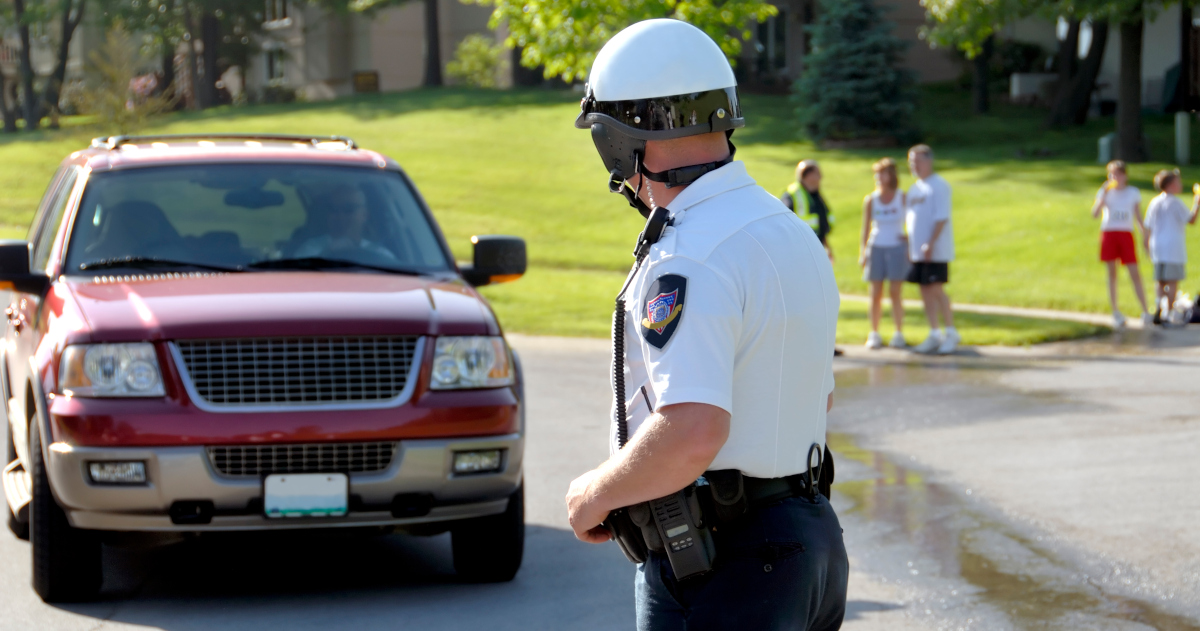
July 1, 2022 – A search warrant affidavit stated sufficient facts to find probable cause although it listed the driveway of the driver’s home address as the location of the drunk driving offense, the Wisconsin Supreme Court has ruled.
In
State v. Green, 2022 WI 41 (June 15, 2022), the supreme court held (6-1) that the facts listed in the affidavit allowed an inference that the drunk driving offense occurred somewhere other than on the driveway of the driver’s home address, a location that is specifically exempted from the offense of operating while intoxicated under state statues.
Justice Brian Hagedorn wrote the majority opinion, joined by Chief Justice Annette Ziegler, Justice Patience Roggensack, Justice Rebecca Grassl Bradley, Justice Rebecca Dallet, and Justice Jill Karofsky. Justice Ann Walsh Bradley dissented.
‘At the Driveway’
In May 2014, the Kenosha County Circuit Court issued a search warrant for a blood draw of Valiant Green, after reviewing an affidavit submitted by a City of Kenosha police officer.
 Jeff M. Brown is a legal writer for the State Bar of Wisconsin, Madison. He can be reached by
email or by phone at (608) 250-6126.
Jeff M. Brown is a legal writer for the State Bar of Wisconsin, Madison. He can be reached by
email or by phone at (608) 250-6126.
The affidavit was a pre-printed form that contained blank spaces and check-boxes. According to the affidavit, at about 1:20 p.m. on May 25, 2014, Green “drove or operated a motor vehicle at the driveway of [Green’s address].”
The officer checked several boxes that provided other information. Green “was observed to drive/operate the vehicle” by “a police officer” and “a citizen witness.”
The officer checked a third box next to the statement “basis for the stop of arrestee’s vehicle was,” then wrote in next to the box “citizen statement.”
Green “admitted to drinking alcohol,” according to the officer’s report. The officer also checked boxes indicating that when he made contact with Green, he observed:
a strong odor of intoxicants;
red/pink and glassy eyes;
an uncooperative attitude;
slurred speech; and
an unsteady balance.
Court of Appeals Affirms
The blood draw of Green conducted after the warrant was issued showed that Green had a blood alcohol level of 0.214 g/100 ml. That amount was nearly 10 times the 0.02 limit that Green was subject to because of his three prior operating while intoxicated (OWI) convictions.
The Kenosha County District Attorney charged Green with fourth offense OWI, fourth offense with a prohibited alcohol concentration (PAC), and resisting an officer. Green moved to suppress the blood draw results, arguing that the warrant was deficient.
The circuit court denied Green’s motion. A jury found Green guilty of OWI and PAC, but the court granted the state’s motion to dismiss the OWI count. Green appealed to the Wisconsin Court of Appeals, which held that the circuit court had properly issued the warrant. Green appealed to the supreme court.
OWI on Driveway Not Prohibited
In his opinion for the majority, Justice Hagedorn pointed out that the state
prohibition on operating a motor vehicle while intoxicated applies only to highways and “premises held out to the public for motor vehicle use, and under
Wis. Stat. section 346.61does “not apply to private parking areas at …. single-family residences.”
Hagedorn noted that Green’s driveway is not a highway and is not held out to the public for use by motor vehicles. Consequently, Green argued that because the affidavit mentioned no other location than the driveway, it alleged only noncriminal behavior and did not show probable cause that any criminal activity had occurred.
Reasonable Inferences are Enough
But Justice Hagedorn explained that reasonable inferences drawn from the affidavit supported a finding of probable cause, and that Wisconsin Supreme Court precedent requires nothing more.
“It is reasonable to read the officer’s addition of the phrase ‘driveway of [residential address]’ to refer to a specific location on the road, much like an intersection would provide a similarly specific location,” Hagedorn wrote.
“The affidavit does not say Green’s driving occurred merely in his driveway, but at his driveway—a location that can reasonably be read to refer to a position on the road adjacent to his driveway,” Justice Hagedorn wrote.
Other Factors
Hagedorn also pointed out that the rest of the affidavit accorded with such an interpretation – two witnesses saw Green operating the vehicle and a statement from a citizen led to the traffic stop.
“Viewing the entire affidavit together, a judge could reasonably infer that Green operated his vehicle on the road while intoxicated, not solely on his driveway,” Justice Hagedorn wrote.
Dissent: Majority Manufactured Probable Cause
In her dissent, Justice A.W. Bradley wrote that the majority “contrives to manufacture” the presence of probable cause.
A.W. Bradley pointed out that the trial judge acknowledged having erred by not asking the arresting officer for more information before granting the warrant for the blood draw.
Justice A.W. Bradley also argued that “the affidavit has a glaring omission: it contained no indication that a crime had been committed at all.”
Supreme court precedent required the suppression of evidence when an essential element of a search warrant was lacking because probable cause was basic to the Fourth Amendment, Justice A.W. Bradley noted.
“The majority would have us believe that ‘at the driveway’ does not mean what it says,” A.W. Bradley wrote.
“How can it be reasonable to infer that a crime has been committed when the only reasonable inference that can be drawn from the affidavit is that Green was operating a vehicle at his own driveway?”
